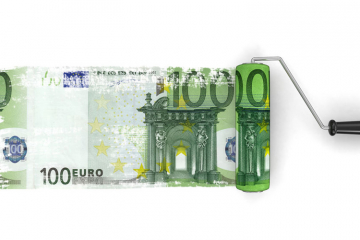I’m in the “business of transformation”. If you’re reading this, I’ll assume you are too. The transformational professional seeks to create an experience for someone that allows them to change, not on the surface, not in their “efficiency”, but in the very structure of their being.
This is becoming big business.
As the new marketplace of coaches, purpose guides, cacao yogis, and unicorn shamans grows ever busier, I want to address the economics of transformation—how we as professionals sell this elusive outcome.
Because there are plenty of snake-oil peddlers out there—plenty of “discover your purpose in 30 days” or “heal your soul wounds with these 6 easy steps”. If you listen carefully, you’ll discern the subtle scream for attention between their words.
It is not this prevalence of this naïveté that I want to address however. I want to talk about the genuine problem of selling this “merchandise”. For transformation is a tricky product to package. And an even trickier effect to measure.
You can’t measure it in hours. It’s not a tactical exercise. There is no clear “problem” that we’re seeking to solve in the next 90 minutes of our coaching session. I can’t put “hours in one end” and “get transformation out of the other.” It doesn’t work like that.
Cultivating the mysterious
The transformational process is mysterious, and unpredictable. It is by definition, surprising—the results of a genuine metamorphosis cannot be accurately discerned from the prior state. Transformation brings together the existential dilemmas that bind us, lights a fire under our ass, burns away the old, and creates the new from its ashes. It draws us down into the deepest questions we hold.
Who are you?
What is being asked of you?
These are not questions that can be fully lived into and unfolded, within the confines of a “two-day intensive”. The goal cannot be achieved in this time frame. In fact, the goal cannot even be achieved in a year, or ten.
Because the goal is not something that is “achieved”. It is of a different categorical nature.
The goal is the cultivation an unknown future potential, whose seed can be planted, nurtured, and encouraged. But the result is not within the control of our conceptual minds, or pragmatic hands. It cannot be promised by the practitioner.
What can be achieved in the creation of a space—an existential garden—where Being itself can grow, from the deep substructures of our archetypal nature, up into the luminous heights of our divine potential.
The great Chaos of Nature gives no guarantees. The process is an alchemical meeting between two human beings, between a coach and a client, between the conscious and the unconscious, between the known and the unknown, between the past of identity and the future of our potentials.
Nut nevertheless, it is an experience—a product—that must be sold, in the marketplace. This is new.
The Merchant and the Seeker
The enlightened master in the mountains—the seeker of the spiritual path— is not generally close friends with the merchant in the marketplace. It is an estranged relationship, as it has been for centuries past.
The purity of the spiritual path has hitherto rejected the profit of trade— “the dharma should be free” they have cried through the halls of the temples. The substance of the spiritual path cannot be turned into a commodity that is sold.
Equally, the marketable needs of the commons do not stretch to such abstract and unquantifiable notions as “awakening” or “self-realization”, The merchants and traders have ignored the spiritual technologies, favouring more “saleable” and “immediate” goods that can reliable turn a profit.
It is only in the last half century that these archetypal postures, have begun to rub shoulders, and have had to contend with their apparently oppositional moral outlook.
And it is only now, in the new bazaar of work that the information age has birthed, that it has gone beyond the possible integration of these opposites, into the necessary integration of them—the necessity to integrate them to such an extent that it underlies the way we actually go about our day, and enact our work.
This integration work entails an honest and oftentimes humbling admission of our biases, and caricaturing of “the other”. I have found, both in myself and many of the people I work with, a preferencing of the spiritual, and a suspicion of the mercantile. The spiritual is “high”, “luminous” and “worthy”. The mercantile is “shallow”, “manipulative” and “greedy”.
But to the extent that we deny the intrinsic and necessary truth of the mercantile perspective, we banish said truth to the shadows. The repression of this posture creates a “shadow merchant” that we see everywhere out in the world, and not at all in ourselves.
“Capitalism” and its exponents then becomes a dark spectre over our world, manipulatively siphoning off wealth and exploiting anything and anyone they can extract profit from. This is a problem.
The Good Merchant
There is a “good merchant” that is revealed when the “shadow merchant” has been faced, and reabsorbed. This archetypal posture is based on the ethics of trade. And to be an “agent of change”, to “give your gifts to the world”, to “live your purpose”, you must understand and embody this posture.
The ethics of trade are based on a very simple truth—voluntary and honourable exchange enriches society.
When we both walk away from an exchange, feeling like we got a good deal, it enriches both of us with goodness.
This is the brilliant insight of the merchant. Slowly, though each incremental exchange between honest people, society at large becomes enriched, and we all benefit.
This is true whether the exchange be material, informational, or transformational. It is true when I work with a client.
“I feel so grateful. I get to work with someone who inspires me. We have fascinating discussions about the nature of work, and the ways in which he is called to his deepest expression. It fulfils me more than anything, to see another human being grow into who they are, and touch the communities around them. And for this I get paid so handsomely that I can dedicate myself to this work with all my vitality. Fuck yeah.”
“Wow. I worked with him for a year, and he helped me transform the entire way I approach my work. I’m clearer than ever about what I’m here to do. I signed my dream client. I’m super productive, and my wife just told me she’s never felt more in love with me. What a bargain.”
The world is literally a richer place after this exchange has taken place.
I have more than when I started. More money. More understanding of the transformational journey. More gratitude for life. More pride at the work of my fellow human.
He has more than when we started. More clarity about his work. More energy and juju. More creative production. More income. More love. More embodiment of his purpose here in life.
The transformation that has occurred will ripple out into the future—in both our lives—in ways neither of us can predict or track.
This kind of trade is hard to put a price on. But value it we must.
The price of change
A life transformed. What is this worth?
€1,000?
$10,000?
There is no one number. The price is determined by the context—it is the figure that energetically charges the container with commitment and devotion, on both sides.
A close friend of mine coaches CEOs. He is very skilled. He changes people’s lives deeply. To work with him for a year costs $100,000. I mentioned this to my mother once, and she felt really quite uncomfortable about the whole affair. It looked greedy, and ugly to her. But this is because the context is foreign to her.
The CEO pays $100,000 because that’s the number that symbolizes commitment to him—investment in a demanding process. The fee for coaching is in one important respect the “promise to do the deep work required”. This is why “free coaching” rarely works. There’s not enough at stake. There isn’t enough energetic commitment, and so the whole project deflates and falls flat.
The CEO’s $100k is like my €10k. Or another’s €1k. It’s a big investment—whatever “big” means to me. It’s a stretch. I know that to get the return, I really need to show up and access a different level of being and functioning. The size of the number is symbolic of the level of significance it holds for me. It’s a “big” moment.
When I pay a “big amount” at a “big moment” in life, “big things” happen.
I paid my first coach $4,000. It felt like a ridiculous sum at the time. I freaked—the—fuck—out. But now I can look back at the change that occurred, and see what an absolute bargain it was.
$10k to the CEO, or €1,000 to me is a figure that can just be thrown at something. And if it doesn’t work out? No biggie.
Money is the way we “charge” the transformational container with energy. It’s not about the actual figure. It’s about the contextual figure that represents both the size of the game we want to play, and the nature of the arena in which we’re playing.
The new way
It is a tricky business. To hold in one hand, the integrity of a process of awakening that cannot be measured by material means, or “replicated at scale”—and in the other, the goodness of trade, and the necessity to offer our products in the marketplace at a price that makes the transformation itself possible.
But it is this integration that we must each contend with as transformational professionals, walking the line between self-gratifying greed and selflessly inept charity, between impractical spiritual depth and well-packaged superficiality.
We must come to understand the world of the merchant and the seeker to such a degree that we can embody their essentials truths, and weave them together so as to seed the transformation we are devoted to in the first place.
This is new. The new way. To hold the ethical precepts of both the merchant and the seeker—the marketer and the mystic—in such a way as the economics of transformation make it available to those who need it, and profit those who offer it.





Thank you Ewan for the clarity. Just yesterday I was being asked how many sessions, how much. And of course there is a need to give an answer. To the question of ‘how much’ my read on your take is that the client has to have financial skin in the game. For me, the coach too. Rightly or wrongly, the ‘pressure’ if you like to serve well, increases the more skin there is at risk. As for transformation, I was reflecting how at the beginning of a coaching journey we may declare what we are moving towards, and that this in itself often transforms en route. It’s too woolly for many, but I’m actually coming to the conclusion that transformation coaching is actually about getting on the path. As we know, once we are on, we can keep on going, peeling back the layers, evolving and re-shaping. Commitment to staying on the path means it never stops. And finally, I remember a number of years ago, as I was starting out, someone asking me ‘transformational coaching.. huh.. what even is that?’. Have we really journeyed that further forwards I wonder? Perhaps so, and perhaps not enough for as long as we continue to try and shoe-horn our offers into a packages to suit the shadow merchants (aka the buyers). Perhaps we need to seek out the good merchants and patiently wait for the rest.